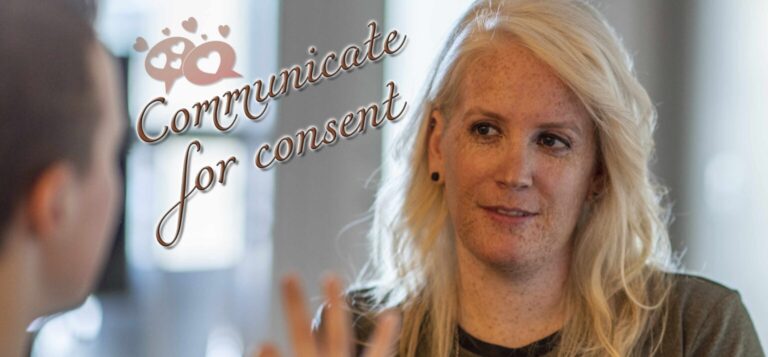I hear event producers and organization managers say all the time that “everyone is welcome” and they will accommodate if someone asks them. That is admirable, however having run a club for 11 years, I have learned that you shouldn’t wait until you have a member or attendee who needs a particular accommodation. When you build good programs and make a real effort to accommodate, people feel safer to try and attend your events.
Here are some accommodations your group or club can make today to be more inclusive. This is not an all-inclusive list, just some initial things that can help get you thinking about inclusivity in a more practical way.
If you are just starting to develop accommodation processes, be honest upfront. Authentic effort allows people to give grace and help you accomplish your goals.
The best way to begin offering more accessible events is to start early, and to start right now. Ask often about accommodations for both in-person and virtual events. The sooner you know about specific requests, the sooner you can start planning. Also, you can learn where to begin by asking the people who attend what they need. Include accommodation questions in all of your paperwork.
At the very least provide an email address folks can contact to ask for accommodation. I think it is scary to ask in a world where the answer is often “no”, so another approach is to include a list of available accommodations in the initial process for your event, group or organization, such as:
I will need the following accommodations:
- Closed captioning
- Reserved front row seat
- Assistive listening device
- ASL Interpreter
- Large print
- Advance copies of slides to be projected
- Wheelchair access
- Visual Interpreter
- Assistive person
- Other: ________________________
- Do you have any food allergies?
NOTE: Don’t overlook food allergies and dietary restrictions. If you provide food at your event, either ask ahead of time about specific accommodations or clearly indicate allergens and other dietary options. Keep the food on low tables so everyone can reach it and have someone available who can serve folks who cannot manage a buffet line.
Again, if someone asks for something that isn’t possible for this event, come up with some alternatives while you work on a plan for next time.
For example: Giving free registration or entry to a friend, companion, interpreter, or assistive person if you cannot manage their accommodation for this event. Then come up with a plan for that accommodation and share it with your attendee. Let them help you, no one knows more about what would be helpful!
BEFORE THE EVENT
Here are some basic things you can do to make your venue more accessible:
- Have you cleared walkways, come up with high visibility walkway markers (like neon tape) to help people pick out walkways in low-light settings like the play space?
- Have you created clear signage in well-lit spaces? Signs in low light are difficult for many people. If you need to post things at the entrances to keep them in good light, or create light in the space the signage is. You can use small reading lights in low light conditions to “spotlight” signage ($6 on Amazon) without ruining your lighting vibe.
- Have you arranged seating close enough for lip reading? Do you have a PA, roving microphone, and available assistive listening devices. An assistive listening device can be purchased pretty inexpensively. For as little as $50 you can accommodate one person, or for the $250 range, you can be ready for 10.
- Provide Assistive Closed captioning: Programs like InnoCaption, Ava, CaptionMate, Rogervoice and many others deliver captioning to tablets and phones. Your organization could buy a tablet, load the software and check them out to attendees without having to access wifi. This device does not need to be fancy, just functional. Someone’s “old” tablet will work for a start.
- Poll your community for Visual Interpreters. If you don’t know what this is, it is a volunteer who assists a person while being their “sight.” There is a learning curve here so again… start early!
- Make sure you have accessible parking, nearby public transportation stations, ramps, elevators, accessible bathrooms, doorways and aisles wide enough for wheelchairs and scooters, and secured floor cables.
- Plan accessible front row seating that includes electrical outlets for mobile devices.
- Make accommodations for service animals, including comfortable spaces, nearby toilets, and water facilities.
- Poll your community for ASL interpreters who are willing to help, and include in ASL services in your budget.
- Start early. I cannot tell you how many times someone has said to me “We couldn’t find an interpreter,” but during the event several people say “If I would have known I could have X…”
- If you can’t get an interpreter in time, or it is cost-prohibitive, then explore alternatives and come up with a plan for your next event and share that with the person asking.
- Coach your presenters about high visibility slides, practicing their presentations with closed captioning, and asking attendees about accommodations BEFORE they begin.
DURING THE EVENT
Select someone (or several someone’s) on your staff who are dedicated to accessibility. They can reserve front row seats, help attendees with seating, be the experts in your technology so they can troubleshoot, maintaining clear pathways, and other accommodation needs as they arise. This person can also be your go-to person when asking “How can we do better?”
Providing closed captions for every part of your event not only makes the content accessible for individuals with hearing loss, but it also offers a better user experience for everyone because captions help with engagement and focus. If you have non-native English speakers in the audience, captions can help them engage as well.
None of us wants to exclude someone, so raise those entry prices by $1 or $5 and tell people WHY. If you tell people that they are paying an extra few dollars so your event can buy software, equipment, or pay interpreters, most will do so with a smile. Also allow folks to donate to pay for the service (whatever it is). Reach out to events and organizations who do this well, and ask them how they do it.
With a small bit of planning, care, and forethought you can dramatically improve the experiences of your attendees or members. It’s important that our communities ensure that everyone can get access to the education and social opportunities they need. Start now, today.


